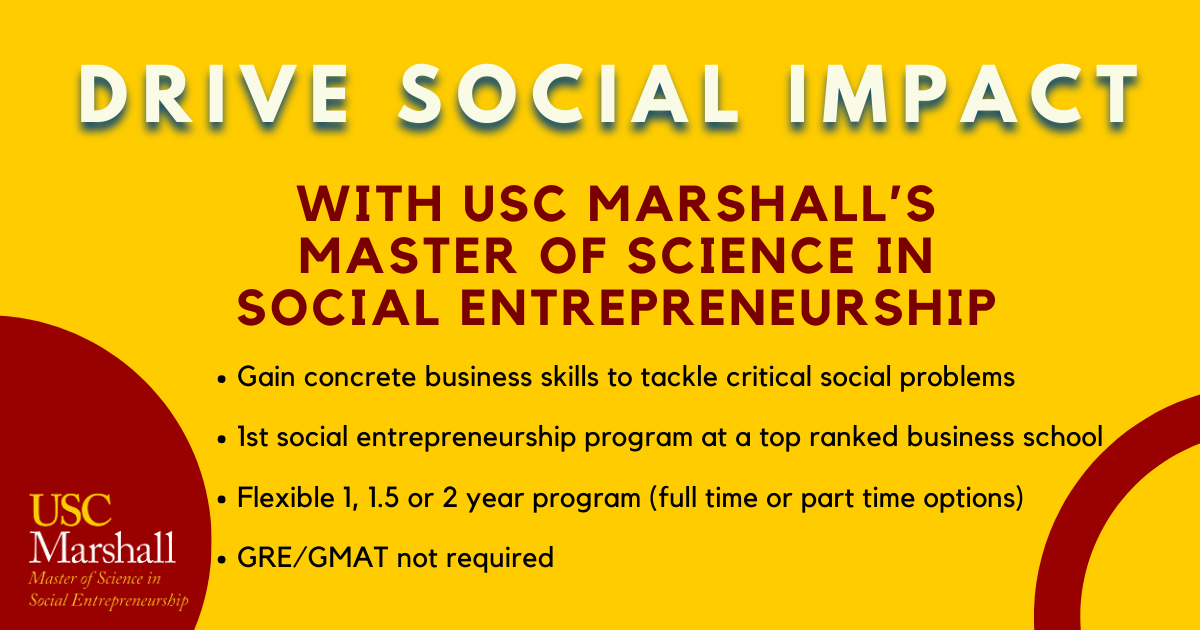
The notion that the role of business is to turn a profit is far outdated. Today, every company is facing increased pressure to contribute more money, time, and resources into initiatives that benefit society and the environment — which is why every entrepreneur must ensure that the success of their business isn’t only measured financially, but also by how their company improves key environmental and social indicators.
As a serial social entrepreneur, I’ve developed three different companies dedicated to improving the quality of life for people and the planet. Here are four questions I believe every entrepreneur should ask themselves before starting a responsible, social-centric company:
1. Will the Company Improve the Lives of Others?
My journey as a social entrepreneur started in my hometown of Manhattan Beach, California. In the late ’70s and early ’80s, the Santa Monica Bay was plagued with pollutants, which turned surfing — a very healthy sport — into an activity that made my friends and me sick. My passion for surfing and for environmental issues sparked my curiosity to understand what toxins were entering the Bay and how exactly they were getting there.
I discovered that the pollutants were entering the Bay through stormwater drains and urban runoff; contractors that cleaned parking garages, urban sites, and manufacturing facilities were washing pollutants into the storm drain and ultimately, the Bay. After understanding the issue, I started a company called Property Prep and pioneered Urban Watershed Cleaning and Zero Discharge — two technologies that scrub toxins from parking lots and industrial sites, thus preventing run-off from entering storm drain systems and polluting the waters into which they feed.
I learned many lessons from launching Property Prep — the art of problem-solving, how to build a successful team, and how to pivot your strategy. But perhaps more importantly, I discovered that it’s critical to identify your core mission and always keep your beneficiaries in mind, whether it’s people or the environment. Your team should always strongly agree that your company is helping to create a better, healthier future.
2. Would We Want Your Product, Service or Solution to Go on Forever?
It’s important for entrepreneurs to assess the impact of their business model. Ask yourself, does your solution benefit society? Is your approach sustainable? When I say sustainable, I don’t just mean environmentally. I mean, would you want your business to go on forever? Every time I’ve developed a new business, I’ve asked myself: Is the solution so sound, so clear, and so important that we would never want to stop doing it, even long past me owning or running the business?
For instance, at EcoMedia, I discovered that social impact can be used as a sales tool to help advertising sellers differentiate themselves from competitors, more effectively apply their client acquisition budgets, and deliver greater business value to ad-buyers — all while generating new funding for nonprofits. In fact, the model at EcoMedia was so successful that CBS acquired it in 2010. Over the course of my career with CBS, we not only helped CBS shift hundreds of millions in advertising spend from competitors, but we also directed more than $100 million dollars to social causes and helped impact the lives of more than 60 million people.
The business model fulfilled two critical objectives: it helped advertisers achieve their ongoing desire to put their brands in front of consumers in the most meaningful and powerful ways; and it helped nonprofits with their never-ending need for sustainable funding sources. This resulted in a new, sustainable way to advertise — that benefitted both the brand and nonprofit involved in the partnership.
3. Engage Skeptics and Ask, ‘What Do You Like About This Idea?’
Translating your idea into a solution that others are excited and motivated by can be one of the greatest challenges for an entrepreneur. From decades of experience pitching new ideas, I’ve noticed that the human mind has a tendency to gravitate to the Devil’s advocate position — and ultimately, this is killing good ideas.
This is particularly true in the corporate world — oftentimes, the risk-averse culture can cause new and innovative ideas to be shot down rather quickly. Before the pandemic, good ideas were dying in conference rooms, and now they’re dying on Zoom calls. Of course, not every idea is a good one. Yet, what I’ve noticed is that if you spend enough time exploring the advantages of a good idea, and are patient enough to dive into its merits, you enable great ideas, great innovations, and great businesses to be born, and ultimately grow.
This was the case when I first introduced the concept of social impact as a sales incentive at my third Social Enterprise, Givewith. Initially, when I received feedback that this new concept wouldn’t work, I posed the question, “What do you like about this idea?” This helped people shift their mindset and break away from their default of being the Devil’s Advocate. In fact, once sellers started using social impact to help sell, they found social impact was a superior sales incentive compared to other client acquisition tools.
So now, when encountering skepticism, I challenge the person to first identify what they like about my idea before we dive into their objections. More often than not, I discover the biggest Devil Advocate ends up being your greatest champion. When people stop resisting change and start embracing the parts of an idea that they truly resonate with, that’s when new businesses are born and new products are launched.
4. Will You Paddle Out to Make it Happen?
When I first began surfing in the days before the Internet, we’d wind up using our precious vacation time driving all the way down into Mexico, only to find that the ocean was flat for weeks. Now, thanks to the Internet, people can predict swells weeks in advance based on buoy readings and other data to ensure it’s worth the trip.
So a while back, a friend of mine was online getting buoy readings. After drawing a very sophisticated graph, he showed us that the biggest waves would be hitting up the coast north of LA the next day. We were stoked and woke up at 4am to drive to Oxnard. As hoped for, the technology gave us exactly what was promised, and the waves were massive. I jumped out of the car, grabbed my wetsuit and board, and headed out to the water. But my friends didn’t move. They shouted, “What are you doing? We’re not going out there!”
I can’t say I wasn’t scared, because I was, but this was precisely the reason we drove up there. So I paddled out, and on the way, I was thrown around like a rag doll. But once I turned around, took off, and got up, it was one of the most incredible surf sessions of my life. You can’t ride the waves sitting on the beach. My point is that it’s both exciting and terrifying to go after what you want, and along the way of building a business, entrepreneurs will be thrown around along the way too. But you can’t ride waves sitting on the beach.
Entrepreneurs must confront their fears and own it, because building a business isn’t just fun and games. So the essential question I ask every entrepreneur is, ‘Will you paddle out?’






